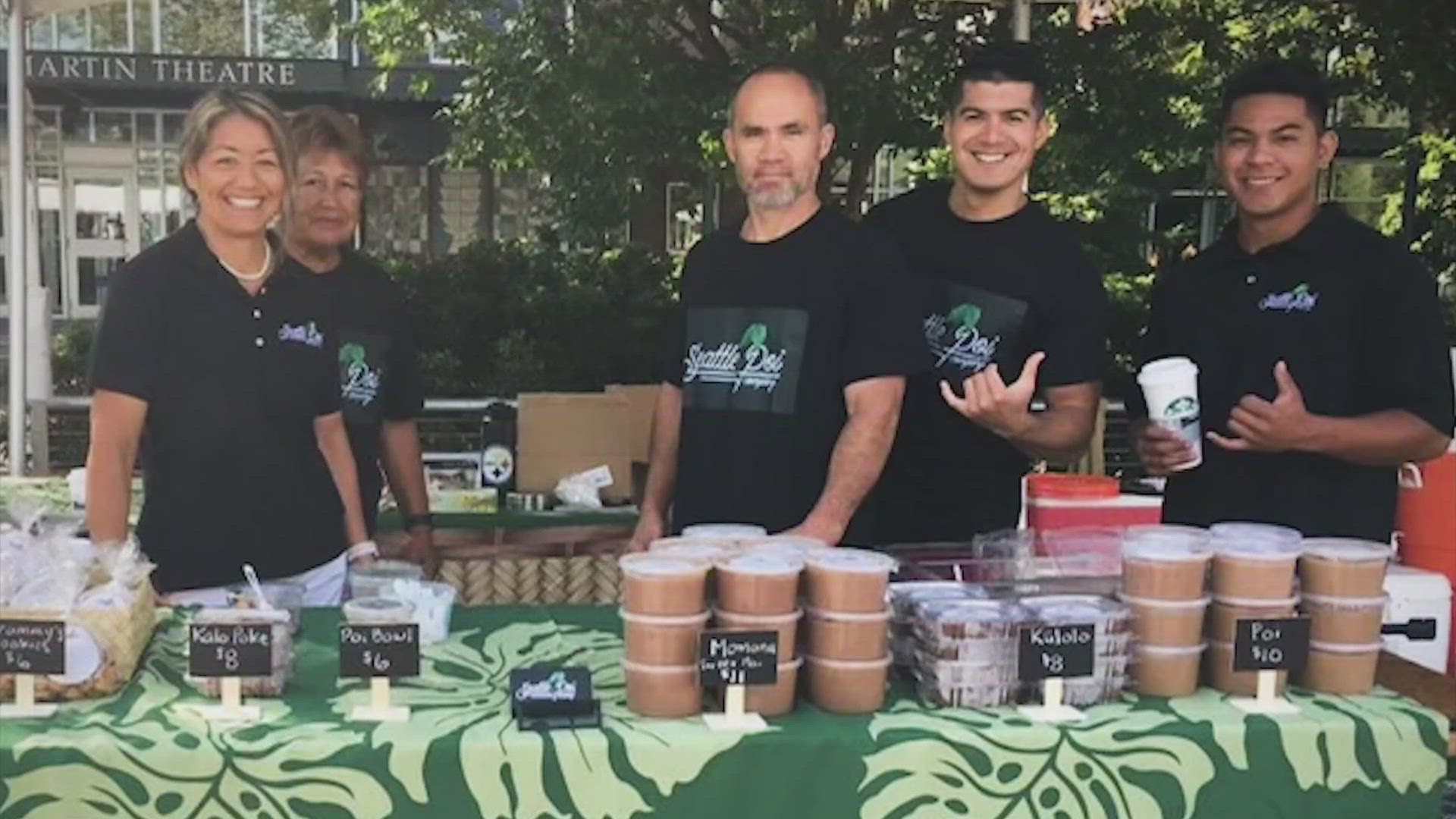SEATTLE — Many cultures are connected by food and there’s one from Hawaii that represents the people more than any other: poi.
Poi is made from the root of a Taro plant. Taro is called Kalo by the natives.
Kalo represents spiritualism. So not only does it provide nourishment but it is thought of as a symbol of Hawaiian culture.
"It's like DNA. It's part of us it's where we come from," Palika and Dana Lastimado, owners of Seattle Poi Company, said.
Palika showed us how to make traditional poi. It requires a stone and a board.
"You use the edge of the papa ku'i 'ai and you break it. Break it down,” Palika explained.
When more water is added, the paste turns into food that feeds the soul.
Poi is easy on the stomach and a probiotic. It’s commonly a baby’s first food. It’s also on the list of superfoods.
Seattle has been the Lastimado’s home since the 1990s when they moved from the village they grew up in on O‘ahu.
"Back in '95, we couldn’t even get Hawaiian salt. Things like poi. Anytime we went back to Hawaii we'd bring it back," Dana and Palika said.
Washington state is home to the second most native Hawaiians in the continental United States. However, the traditional treasure that is poi never made a home here.
That was until 2017 when the Lastimado’s made and sold it at the Live Aloha festival at Seattle Center.
"We sold out in a couple hours maybe. Two hours," Dana said. "At that point we kind of realized I think there's a market in this."
Their business never looked back.
"New York, Florida, Canada. We even ship back to Hawaii. It's the craziest thing," the couple said with a smile.
The Lastimados said Seattle Poi Company is the only small business that makes poi in the continental U.S.
The reason is that it’s not easy to get Taro from Hawaii.
"This is how the kalo or taro is shipped to us just like this,” Palika showed off the corm. “See how clean it is? But imagine this thing is growing in the ground.”
The Taro used by Seattle Poi Company comes from Kauaʻi. The crop is fed by two rivers that flow into a beautiful valley.
"When you go there you can feel the love. It is so amazing," Palika said.
The Taro is untapped by a local farmer there. He hand-picks the underground root, cleans the corm and sends it to Seattle.
“Whether you buy poi from us or from someone else, it allows the farmer to plant more. And the more he gets he can take the land back to what it originally was," Dana explained.
Beyond providing the taste of poi and other treats, the couple has used their platform to help their homeland. They’ve led fundraisers during the Lahaina fires last year and the 2018 flood on Kauaʻi.
"It turned around and reconnected us back to our culture. It helps us share more of our history. To let people understand the history of Hawaii,” the Lastimado’s said.
Poi is a prime example of the connection Hawaiians have to their land. Seattle Poi Company brought that here and is allowing us all to take part in it.
Seattle Poi Company sells their poi and other Hawaiian treats at pop ups around the region.
They are going to AANHPI events this month to teach people how to make traditional poi.

